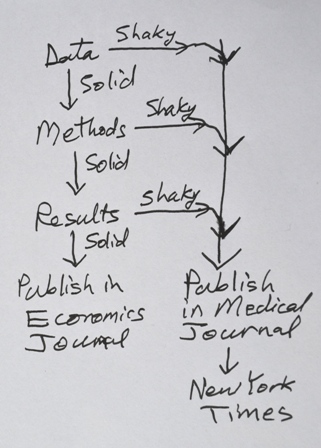A majority of Britons who are on state assistance now believe that the system is too generous and discourages recipients from seeking jobs:
In 2003, 40 per cent of benefits recipients agreed that ‘unemployment benefits are too high and discourage work’; in 2011, 59 per cent agreed. So a majority of actual benefits recipients now think the welfare state is too generous and fosters worklessness. Surely those well-off welfare cheerleaders, when shown these figures, would accept that perhaps they don’t know what they’re talking about. But no, they have simply come up with a theory for why the poor are anti-welfare: because they’re stupid.
Even more resented than those who abuse the system are those who run it:
Working-class mothers hated the way that signing up for welfare meant having to throw one’s home and life open to inspection by snooty officials, community health workers and even family budget advisers.
They didn’t want ‘middle-class strangers’, as they called welfare providers, ‘questioning them about their children’. They felt such intrusions ‘broke a cultural taboo’.
And the use of welfare as a way of allowing society’s ‘betters’ to govern the lives of the poor continues now. Indeed, today’s welfare state is even more annoyingly nannyish than it was 80 years ago.
As the writer Ferdinand Mount says, the post-war welfare state is like a form of ‘domestic imperialism’, through which the state treats the poor as ‘natives’ who must be fed and kept on the moral straight-and-narrow by their superiors.
Mount describes modern welfarism as ‘benign managerialism’, which ‘pacifies’ the lower orders.
Working-class communities feel this patronising welfarist control very acutely. They recognise that signing up for a lifetime of state charity means sacrificing your pride and your independence; it means being unproductive and also unfree.

 Aid Watch has complained before about shaky social science analysis or shaky numbers published in medical journals, which were then featured in major news stories. We questioned creative data on stillbirths, a study on health aid, and another on maternal mortality.
Aid Watch has complained before about shaky social science analysis or shaky numbers published in medical journals, which were then featured in major news stories. We questioned creative data on stillbirths, a study on health aid, and another on maternal mortality.

